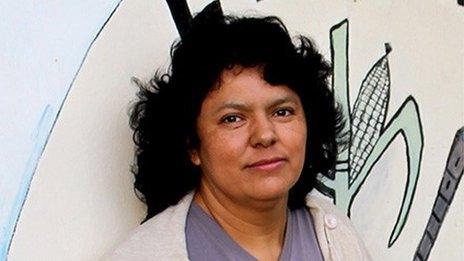Honduras on 'red alert' over female murders, say activists
- Published
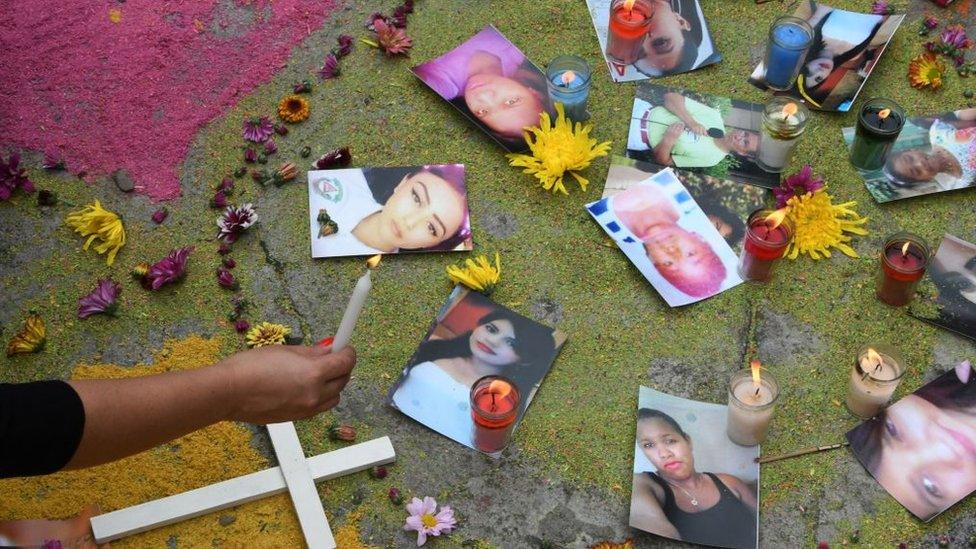
Victims of femicide commemorated at a protest in Tegucigalpa
Honduras is on "red alert" over the number of women being murdered, according to the country's rights activists.
Members of 20 different women's groups have banded together to highlight the problem, saying at least 18 women were killed in the past two weeks.
The organisations say out of 463 women murdered last year, only 15 cases were investigated.
The country's overall murder rate is down, according to official statistics.
The state figures, released this week, show the total murders fell by 22% in the first six months of this year.
The government says it is making progress and is working to reduce violence across the country, including by creating new security forces.
However, women's groups worry that they are focusing heavily on organised crime and narcotrafficking, while not doing enough to combat assaults that directly target women, such as rape and domestic violence.
"We don't trust the official figures," says Sara Tome, programme director at the Centre for Women's Studies in the capital, Tegucigalpa. "We are angry about the constant indifference in the justice system."
The centre stood alongside other groups to write a manifesto calling for more action. "We declare that the state security strategy does not serve women," they said.
The activists also decried the ways the women's bodies were often found badly mutilated or decapitated.
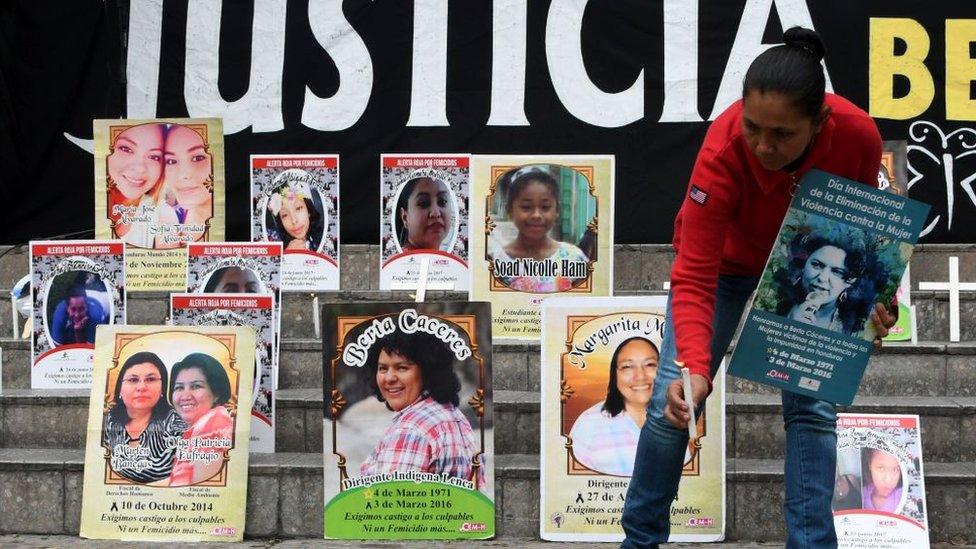
Pictures of women who have been killed, including well-known environmental activist Berta Caceres (centre)
On Tuesday, a protest against femicide was held outside government buildings in Tegucigalpa.
Participant Merli Eguigure, of the Women for Peace Movement, told the local press: "We are tired of saying that we [women] are important people, supporting the country."
The action coincided with a state delegation attending a UN Human Rights Committee meeting in Switzerland.
Ms Eguigure had said she hoped the officials would not present a "rose-tinted" vision of life in the country when speaking of recent progress.
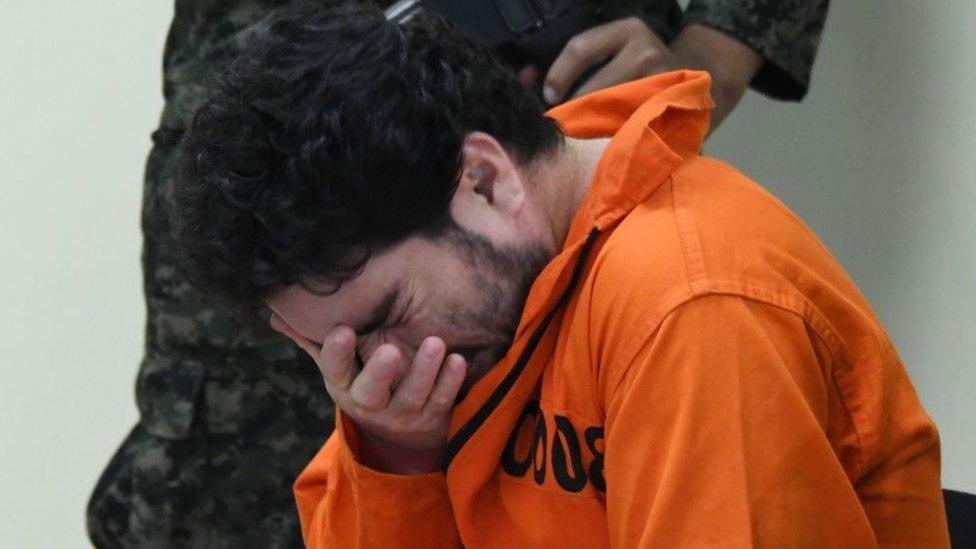
In May, Plutarco Ruiz was found guilty of murdering his girlfriend Sofia Trinidad Alvarado and her sister, the former Miss Honduras, Maria Jose Alvarado
In Geneva on Wednesday, Rolando Argueta, the president of the Honduran Supreme Court, spoke of a "significant reduction in the homicide rate", but added: "We are not satisfied. We know we still have challenges."
Last year, the government announced a new unit investigating violent deaths of women.
"They don't tell us what they are doing though," said Ms Tome. "We don't have any information on their work."
The district attorney for women, María Mercedes Bustelo, told El Tiempo newspaper in May that the unit had faced various impediments.
"Lots of women experiencing domestic violence are involved with gang members, so there is no way they will report it. They can't ask for help because it would be a death sentence," she said.
Tuesday's demonstration was also in memory of environmental activist Berta Caceres, who was murdered in 2016.
Last week, her 26-year-old daughter, Bertha Zuniga Caceres, was also attacked, but she survived.
Ms Caceres, who is a land rights campaigner like her mother, was travelling in a car on Friday with colleagues when they were set upon by three men armed with machetes.
- Published28 October 2016
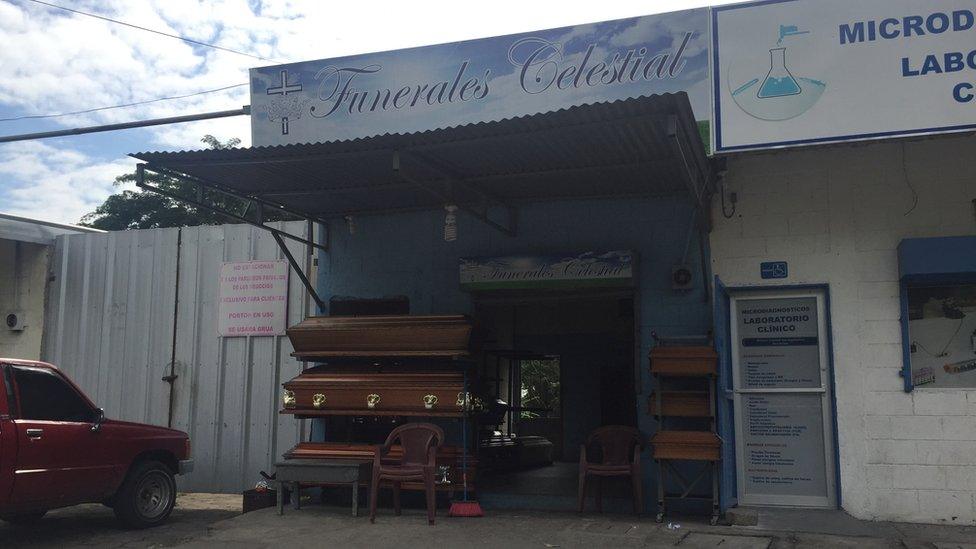
- Published19 November 2014

- Published3 March 2016
